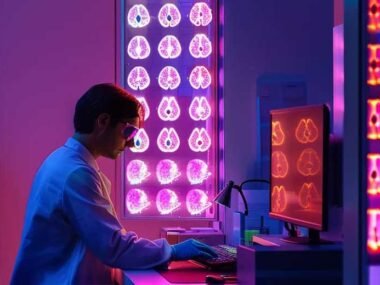Good health decisions don’t happen by chance. They come from having access to the latest information, tools, and support. Whether managing personal well-being or working in healthcare, staying informed translates to better choices. Using accurate data, smart technology, and expert guidance helps people take control of their health instead of relying on guesswork.
Healthcare professionals have even more responsibility when it comes to decision-making. Their training, experience, and ability to interpret medical information shape patient outcomes. Running tests, diagnosing conditions, and recommending treatments all require careful thought. When professionals have access to updated knowledge and advanced tools, they can provide better care while helping individuals make informed choices.
Role of Education in Smarter Health Decisions
Medical research never stands still. New treatments, technologies, and guidelines emerge all the time, making it essential for healthcare professionals to keep learning. Higher education expands their ability to analyze patient needs, adapt to advancements, and improve overall care. Staying updated isn’t just beneficial but necessary for delivering effective treatment.
Nurses, for example, often seek further education to strengthen their expertise. Many enroll in an RN to MSN online program to gain advanced medical knowledge, improve patient care techniques, and qualify for leadership roles. These programs allow them to study while continuing their jobs, helping them stay informed without stepping away from clinical practice. With deeper knowledge and stronger skills, nurses can make more confident decisions and offer better support to patients.
Technology and Digital Health Tools in Decision-Making
Smart technology has changed how people manage their health. Fitness trackers, smartwatches, and health apps provide real-time insights into daily habits. These tools help track heart rate, sleep patterns, and activity levels, making it easier to recognize trends and make small improvements. Instead of guessing, people can rely on data to fine-tune their routines and set realistic health goals.
For healthcare professionals, digital tools make patient care more effective. Telehealth platforms give doctors and nurses the ability to consult with patients remotely, offering faster support without unnecessary in-person visits. Digital health records store patient history securely, making it simple to track progress and spot potential issues early. With instant access to data, medical professionals can tailor treatment plans more efficiently, improving overall patient care.
Understanding Reliable Health Information Sources
Health information is everywhere, but not all of it is accurate. Misinformation spreads quickly, especially online, and following the wrong advice can cause more harm than good. Knowing how to separate reliable sources from misleading ones is crucial for making informed choices. Trusting expert-backed research and proven medical guidance leads to smarter decisions.
Government health agencies, peer-reviewed medical journals, and well-respected healthcare organizations provide trustworthy information. Speaking with licensed medical professionals also helps clarify confusing or conflicting advice. Relying on evidence-based sources instead of trends or unverified claims makes it easier to understand risks, benefits, and the best course of action for any health concern.
Personalized Health Plans and Preventive Care
Health needs are different for everyone, which is why generic plans don’t always work. Personalized care takes into account individual medical history, lifestyle, and risk factors. A customized approach allows for better management of nutrition, exercise, and medical treatments, helping individuals stay on track with their health goals.
Preventive care is as important. Regular check-ups, screenings, and early detection tests help identify potential health issues before they become serious. Blood tests, physical exams, and routine monitoring provide valuable insights, allowing people to make changes before problems escalate. Taking a proactive approach reduces the chances of unexpected complications and promotes long-term wellness.
Importance of Mental and Emotional Well-Being
Good health isn’t just about physical care. Mental and emotional well-being also matter, yet they often get overlooked. Stress, anxiety, and burnout affect both personal health and decision-making abilities. Ignoring these issues can result in poor choices, unhealthy habits, and a decline in overall well-being.
Using the right tools helps people manage their mental health more effectively. Mindfulness apps, therapy platforms, and online support groups provide resources for emotional support. Simple habits like daily movement, journaling, and setting boundaries improve mental clarity. Just like physical health, mental health needs regular attention to stay balanced and strong.
Collaboration Between Healthcare Providers and Patients
Healthcare works best when it’s a two-way conversation. Patients who actively participate in their care get better results, while providers who listen and communicate clearly can offer more effective treatments. A strong partnership between patients and healthcare professionals means timely decisions, better health outcomes, and fewer misunderstandings.
Asking questions, discussing concerns, and following up on treatments help patients take control of their health. On the other side, doctors and nurses who encourage open discussions help build trust. Shared decision-making allows both sides to work together to find the best approach for treatment and lifestyle adjustments.
Long-Term Approach to Smarter Health Choices
Health isn’t about quick fixes. Fad diets, extreme workout plans, and one-time detoxes don’t lead to lasting results. A smarter approach focuses on consistency, small improvements, and realistic goals. Healthy habits should be something people can maintain, not something they do for a few weeks before giving up.
Tracking progress, adjusting goals, and staying informed about new health strategies enable individuals to make smarter health decisions. Using tools like fitness trackers, meal planners, and medical check-ins helps maintain consistency.
Making smart health decisions requires the right knowledge, tools, and support. Whether using technology, seeking expert advice, or improving mental well-being, having access to the right resources makes a huge difference. Healthcare professionals, patients, and individuals all benefit when informed choices guide the way. Focusing on long-term habits rather than quick fixes creates a healthier, more sustainable lifestyle.










